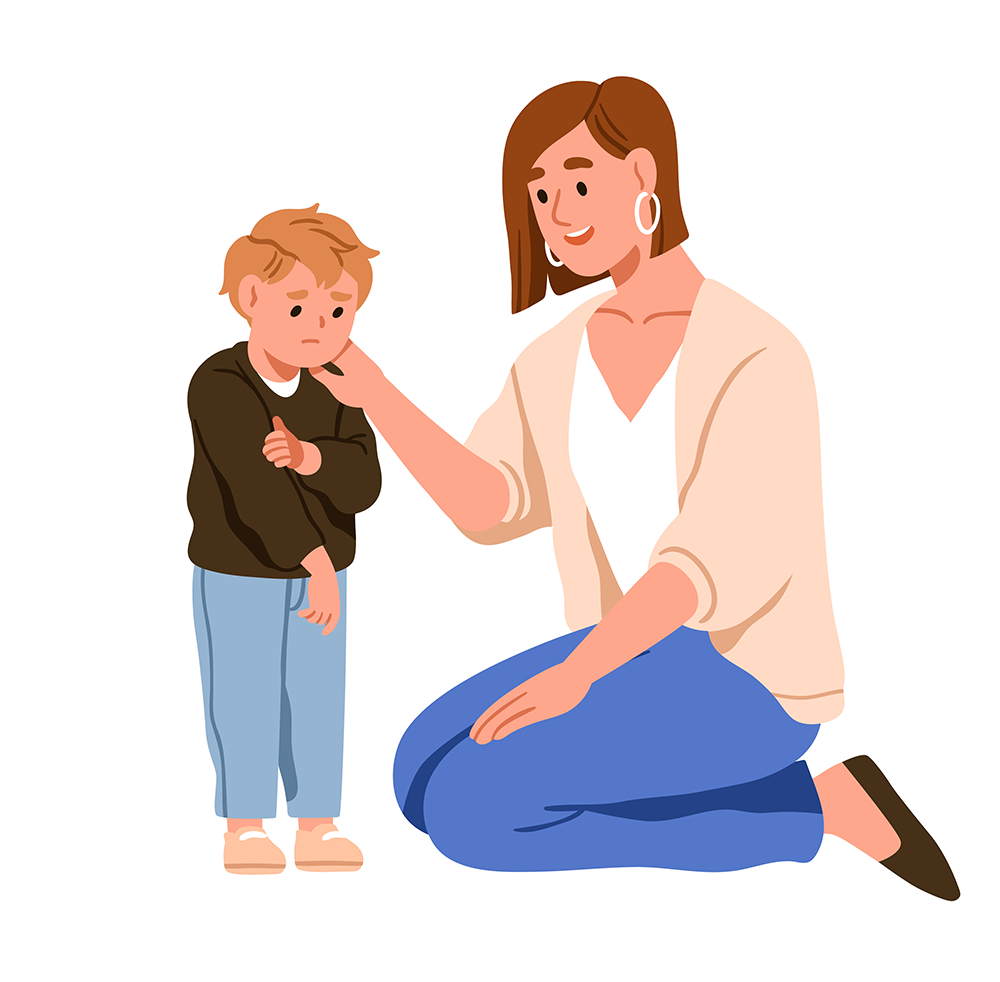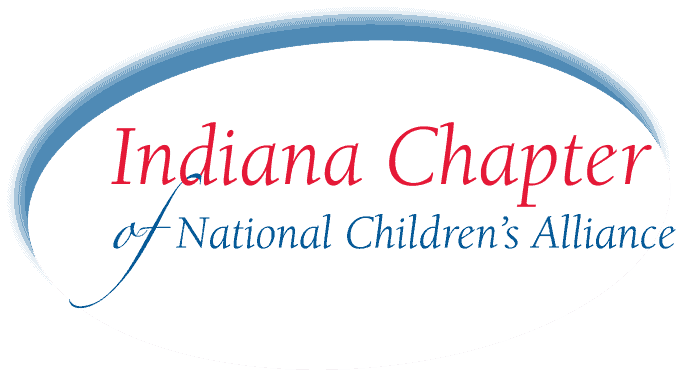Every state in the U.S., including the District of Columbia, has some sort of mandated reporting law for child abuse or neglect. Mandated reporting laws require specific people to report suspicions or evidence of child maltreatment to either law enforcement or their state child welfare agency.
Most states require specific professions to be mandated reporters, like doctors, clergy, or school administrators. Indiana goes a step further, requiring any individual who has reason to believe that a child is a victim of child abuse or neglect to make a report.
- In agencies in which there are established reporting protocols, such as schools, a report must be made to law enforcement or the Department of Child Services first. After the report is made, the individual in charge or another designated agent such as a building principal or HR, can be notified. They also become responsible to report known information.
- This does not relieve individuals who make a report to another staff person of their own obligation to report directly to child protection services or law enforcement unless the agency liaison has already made a report.
- This includes people under the age of 18.
- If a report alleges abuse by a staff member, coach, or volunteer, law enforcement is required to investigate whether the institution, school, or agency was aware of the abuse and failed to act.

“The key words here are everyone and suspicion,” says Toby Stark, child advocate and former Executive Director of Hamilton County-based Chaucie’s Place, a nonprofit that offers child sexual abuse and youth suicide prevention programs throughout the state. “Here in Indiana everyone is required to report knowledge or suspicion of abuse—you don’t have to prove abuse is happening; proper authorities will do that,” says Stark.
“A big point of confusion is the reporting. You are not fulfilling your legal obligation by reporting it to a school principal or the head of an organization or to an alleged perpetrator’s family member. That is not your legal obligation, it’s to the Indiana Department of Child Services (DCS) or law enforcement.”
If you suspect or know of child abuse, sexual assault, or other maltreatment, reporting it isn’t optional. It’s your legal and moral responsibility.
When to report abuse to 911 vs the Child Abuse Hotline
There is a slight difference in reporting to the hotline versus 911. Some police departments, depending on their size, scope, and resources, may investigate every report of alleged abuse.
DCS will conduct a screening, asking a series of questions to try to understand the nature and severity of a situation.
- DCS may screen out a report (which means it won’t be investigated).
- DCS may investigate and deem a report unsubstantiated (which means the agency didn’t think it had enough evidence to move forward on the child’s behalf).
- Or, DCS may investigate and deem the report substantiated (which means action will be taken).
“If you look at those options, two out of three options are where nothing is going to happen for the child. That’s why we recommend reporting to both law enforcement and DCS,” says Stark.
Contact 911 first when…
- A child is in immediate physical danger
- You witness abuse happening in real time
- A child needs urgent medical attention due to suspected abuse
- You fear the abuser may flee or retaliate
- You believe law enforcement needs to act right away
Contact DCS first when…
- You suspect abuse or neglect
- You notice concerning signs like bruises, fearfulness, or poor hygiene
- A child confides in you about abuse or neglect
- You’re unsure but concerned enough to report
- You want to ensure the situation is assessed by child welfare professionals
Contacting both 911 and the Child Abuse Hotline ensures the most thorough response to protect a child.
While DCS assesses the situation and decides whether it meets their criteria for investigation, police can act immediately when safety is at risk. Reporting to both gives the child the best chance of being seen, heard, and helped, no matter how the system responds.
Protection for those who report abuse
Anyone issuing a report, regardless of age or whether it’s to law enforcement or the Child Abuse Hotline, is shielded from litigation, prosecution, or any other kind of risk if a claim is incorrect, if the report is made in good faith. “As long as you’ve made a good faith report, we must have faith in the system that it will be considered and investigated appropriately,” says Stark. Indiana doesn’t exempt anyone from this requirement. Doctors, clergy, and attorneys are all required to report suspected abuse, regardless of other privacy privileges they may have.
“Indiana’s mandated reporter law is broad and deep…which offers the best layer of protection for children,” says Stark. But there’s still misconceptions about how to report suspected abuse and the need for enforcement and accountability with the law remains high. “If high-profile individuals and organizations aren’t held legally accountable for not following the law, it’s easy for everyday residents to think they’re not required or accountable, either,” says Stark.
Some high-profile instances have arisen over the last year throughout Indiana. “In these situations, there were a couple things to look at. One, parents went to school or organization administrators thinking they were reporting. Parents have to understand their reporting responsibilities. Two, in each of those situations the organizations don’t appear to have reported in a timely manner. They investigated the reports and allegations on their own,” says Stark.
Many adults may view a claim by a child as false simply because the child has been troublesome or untrue in the past. Stark has clear words for those instances, “That’s not up to the adult.” You must assume it’s the truth and abide by the law. And, Stark adds, “The percentage of children who falsely disclose abuse is miniscule.”

Am I protected if I report suspected abuse and turn out to be wrong?
Yes. As long as the report is made in good faith, Indiana law protects you from litigation or prosecution even if the claim turns out to be incorrect. The law is designed to protect those who speak up responsibly.
Does telling a school administrator count as reporting?
No. Telling an administrator is not the same as reporting to law enforcement or the Child Abuse Hotline. Parents and community members must understand that they are responsible for making a direct report.
What happens if someone doesn’t report suspected abuse?
They may face legal consequences. When individuals or organizations aren’t held accountable for failing to report, it sends the wrong message. Everyone is legally required to report.
What if I don’t believe the child because they’ve lied before?
That’s not up to you to decide. You must assume the child is telling the truth and report the suspected abuse. Studies show the percentage of children who falsely share about abuse is extremely low.
Additional training and processes for learning about the signs of abuse
To protect children and adults, “DCS and law enforcement have a process,” says Stark. “They will ask the right questions to determine if a child is being harmed.”
Several Indiana abuse prevention organizations and Child Advocacy Centers offer short courses for adults and children. One program called Stewards of Children®, is designed for adults. “It teaches parents and adults who work with children how to prevent child sexual abuse, recognize the warning signs of abuse, and how to respond to a disclosure or suspicion of abuse legally and ethically,” says Stark. She adds, “What it does is empower adults. Making a report of suspected abuse is a very hard phone call to make, I don’t care who you or what you do for a living, it’s hard.” Stewards of Children aims to educate and empower adults in the importance of making that call.
You can find a course near you by visiting d2l.org. You can also find a Child Advocacy Center near you, for help finding other programs in your area. Know that reporting suspicions of abuse to a CAC is not fulfilling your legal requirement. There are only two ways to legally report abuse in Indiana: through law enforcement or the Child Abuse Hotline at 1-800-800-5556.


1 thought on “Indiana’s mandated reporting law means everyone, even you, has a duty to children”
Comments are closed.